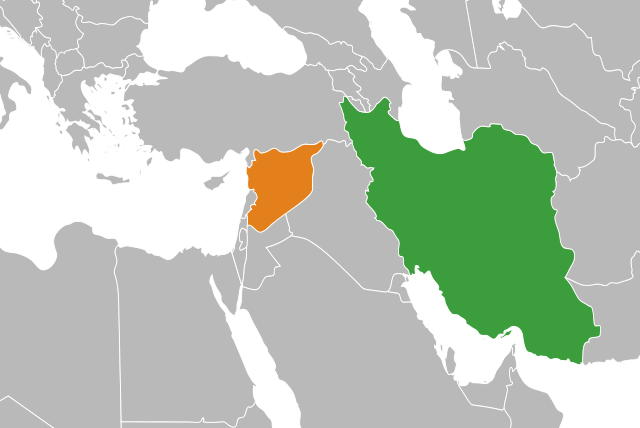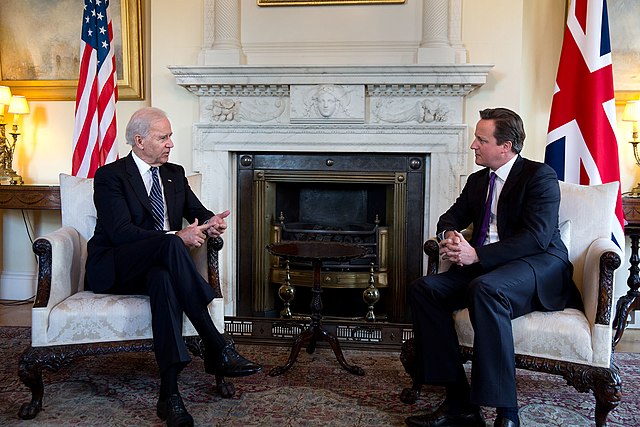Iran’s Attack Gives Israel a Pretext to Escalate

By: Ghassan Rubeiz / Arab America Contributing Writer
Just as Hamas’s October 7 attack on Israel changed the landscape of Middle East politics, Israeli Prime Minister Netanyahu changed it again nearly six months later by ordering an airstrike on the Iranian consulate in Damascus. The strike killed 12 Iranians and Syrians, among them two high-level commanders in the Islamic Revolutionary Guard. Having failed to defeat Hamas, free the Israeli hostages, improve his image inside and outside Israel, or maintain good relations with the White House, Netanyahu is seeking relief from the overwhelming pressure. His strategy is to widen the regional conflict by attacking an Iranian embassy in a deliberate act of war.

For the moment, Netanyahu’s scheme to start a regional war may be succeeding. Iran felt it had to respond to such a provocative act. On April 13, Tehran retaliated with a massive airstrike, sending a message that it had enough of Israeli belligerence. There is growing concern that Israel might jump at an opportunity to retaliate by attacking a significant asset inside Iran.
According to US and Israeli reports, 99% of the drones and missiles Iran launched were successfully intercepted. Israel’s Iron Dome defense system and US’s air force assets worked well together. US assets were moved closer to Israel in preparation for the Iranian strike. CNN reported that Iran informed Turkey about its planned strike in advance, and Turkey in turn conveyed the Iranian message to the US administration.
Iran’s attack on Israel fulfilled Netanyahu’s long-held wish. He was able to regain unconditional support from Biden in a new situation: defending Israel’s security against a significant Iranian threat.
It appears Iran had two objectives:
- A show of force: Iran has demonstrated it can mount a massive attack on Israel. By revealing its intentions ahead of time, it allowed most of the drones and missiles to be intercepted; this means the attack caused few if any casualties or damage. This is presumably to avoid giving Israel any justification for retaliation. Biden has already told Netanyahu he will not support any offensive action by Israel against Iran.
- A change in the rules of engagement: Leaving behind the strategy it has followed for the past 40 years, Iran is asserting that retaliations for attacks on Iranian assets will no longer be carried out by proxies. Instead, the response will launch from Iranian soil and be carried out by Iran’s own military.
On the day of the attack, public debate gradually shifted from what might happen to Israel as a result of this unprecedented Iranian offensive to what opportunity Israel might find in this developing situation. Three questions come to mind: Was the Iranian strike a reckless move? Will Israel see this attack as an opportunity to do something it could not do before? What is the impact of the attack on the Gaza war?
Reflections on Iran’s move:
It may be too early to tell if Iran chose the right approach. Opinions vary widely. Middle East analyst Michael Young, of Carnegie, argues that Iran calibrated the attack to cause more fear than casualties. It did not target civilians. It refrained from launching more or heavier missiles. It did not ask Hezbollah to escalate its attacks. Perhaps, the thinking goes, Israelis will sober up and start listening to its aggrieved neighbors. Young asserts that Israel has long projected an image of strength. The Iranians have succeeded in scratching that image.
Tehran knew that Israel’s close allies would quickly rally to defend its security, and that is what happened. Iran has not gained friends in this operation, but may have gained the respect of its adversaries on matters of self defense. Israel’s war cabinet sounds more assertive than ever but remains divided on how to respond. Moreover, Biden and UK’s Foreign Minister David Cameron have cautioned Israel against taking any new retaliatory action toward Iran. Israelis feel that the successful interception of the missiles and drones demonstrated the strength of their defense system and the reliability of their partnerships, but they should realize that in the next round of escalation, the results may be different.

Israel exploits this opportunity:
Iran has already acknowledged that it is done with retaliation for the time being. It has responded “proportionately” to Israel’s attack on its consulate. Israel, on the other hand, with guaranteed assistance of strong allies, feels that it should take the opportunity to humiliate Iran. Israel has always believed that it should have the upper hand in the balance of power in the region. It believes it must never lose the advantage of strong deterrence.
So far, there is no agreement within Israel’s war cabinet on when or how to retaliate, or on how far to go. On several channels John Bolton, a hawkish, former US National Security Advisor, has long advocated for an attack on Iran’s nuclear facilities. This is “the best time” to degrade Iran’s nuclear infrastructure, Bolton thinks. Extremists in Israel’s cabinet agree with Bolton, despite the fact that the US has warned Israel not to attack Iran in any way. Biden considers Netanyahu to have won this round of confrontation. He advised Netanyahu to take it as a “win” and “run with it”. He warned Netanyahu that if Israel retaliates against Iran, the US will not participate. But given the mood in Israel and the hard-line leaning of the current government, the urge for revenge is strong and growing stronger.
In a CNN interview, Aaron David Miller, a well-informed, close observer of Israel and a former senior State Department diplomat, thinks that Israel will retaliate, but not immediately. It is my opinion that Israel will not forgo the chance to inflict pain on Iran, in order to show that it has not lost its military superiority and force of deterrence.
Impact of Iran’s attack on the Gaza war:
On April 13, the media abruptly stopped focusing on developments in Gaza: the focus shifted to Iran’s barrage of rockets targeting Israel. But the risk of loss of life among hostages is increasing. Ceasefire negotiations seem frozen; the suffering is in the shadows. Talk of a ground offensive on Rafah is muted.
But Gaza may soon return to the headlines, reminding the world community that without a ceasefire, the regional situation will continue to deteriorate. Netanyahu will try to exploit the situation to prolong his hold on power. Iran will follow its new playbook in defending its own security and its interests in the region. And Biden will worry about losing the ability to thwart Israel from attacking Iran.
Ghassan Rubeiz is the former Middle East Secretary of the World Council of Churches. Earlier he taught psychology and social work in his country of birth, Lebanon, and later in the United States, where he currently lives. For the past twenty years, he has contributed to political commentary and delivered occasional public talks on subjects related to peace, justice, and interfaith. You can reach him at rubeizg@gmail.com
The views and opinions expressed in this article are those of the author and do not necessarily reflect the position of Arab America. The reproduction of this article is permissible with proper credit to Arab America and the author.
Check out our Blog here!



